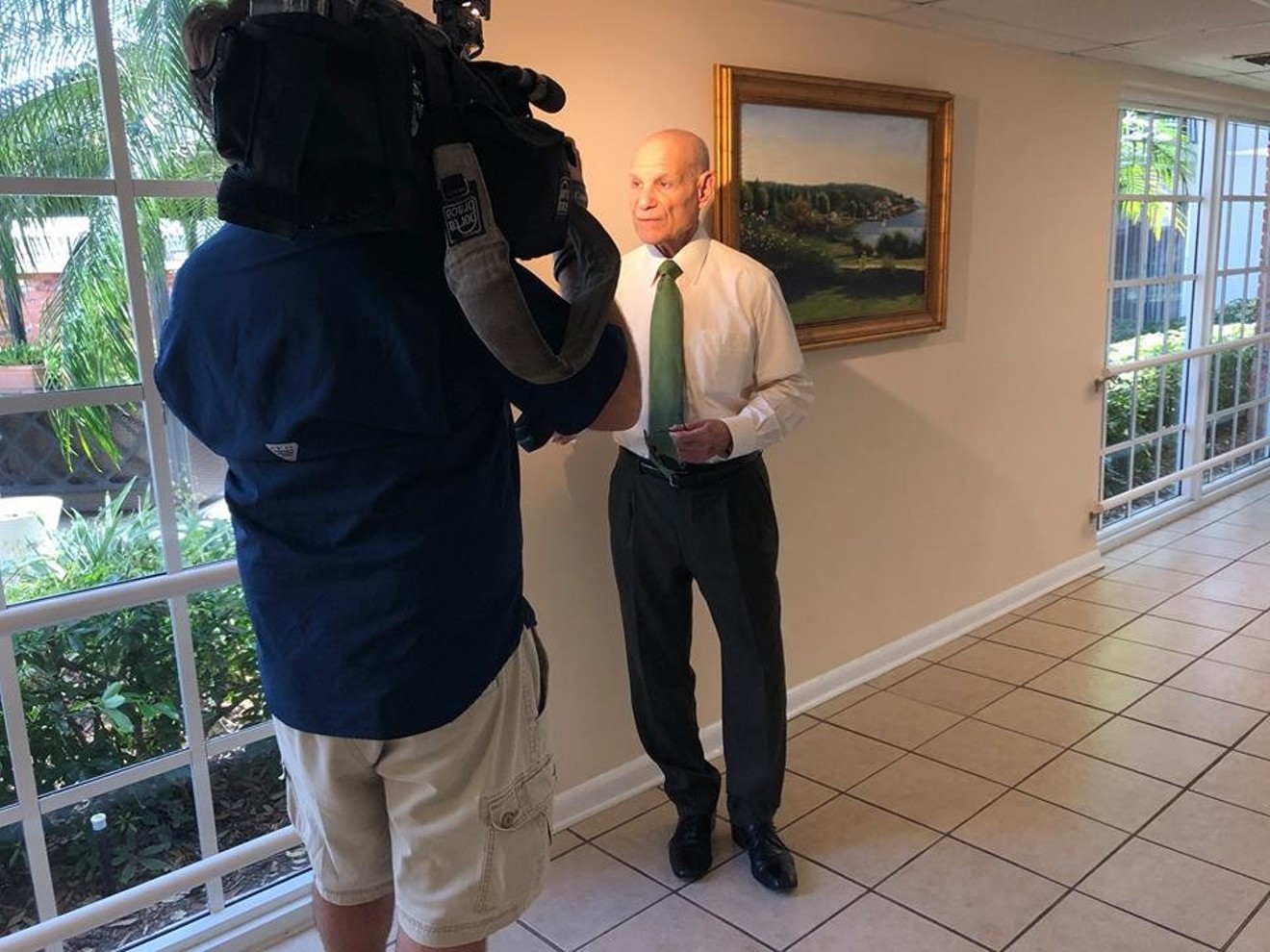But in a scathing open letter issued yesterday by the Broward Public Defender's Office, chief defender Howard Finkelstein — Satz's longtime nemesis — accuses Satz of failing to keep up with the times and refusing to adopt common-sense reforms to ensure that basic justice is served in Florida's second-most populous county.
"We are requesting that you make changes in your office's procedures to correct institutional failures impacting the fair administration of justice in our community," the letter begins. "We are asking you to implement these changes because they are necessary to bring your office in-line with other prosecution offices around Florida and the nation that have recognized that they are not perfect and their decisions should be better scrutinized. Simply put, your legacy includes wrongful convictions and turning a blind eye to suspect evidence and racially motivated police practices. It is time to establish safeguards against these very real problems for the future of our community."
Among multiple points, Finkelstein and the executive chief assistant public defender, Gordon Weekes, say they're livid that Satz hasn't created a Conviction Integrity Unit to ensure that false convictions are weeded out and corrected. They're angry that Satz seemingly has no panel to review death-penalty cases and no group of experts tasked with approving requests to "direct-file" children and charge them as adults in court. And, perhaps most staggering, the Public Defender's Office says that after the Broward County Sheriff's crime lab was temporarily shut down after multiple scandals in 2016, Satz essentially did nothing to force BSO to correct the situation.
Reached by phone, Weekes, who is running to replace the retiring Finkelstein in 2020, says that although his office has lodged these complaints separately at Satz's office over the years, he and Finkelstein believed it was time to lay everything out in a single letter to the State Attorney's Office.
"This is the first letter that encapsulates all these issues together," Weekes says. "We were having conversations inside our office, saying look at what other state attorney's offices have done. We were really taken aback by the way some stuff has been handled."
Satz's office said yesterday it could not immediately respond to the letter. But across the nation, prosecutors have come under renewed scrutiny in a post-Black Lives Matter world. They hold immense power over their communities — they decide who is charged with which crimes and strongly influence the amount of time a person spends behind bars. Other cities — Philadelphia and St. Louis, for example — have recently elected progressive, "decarceral" prosecutors who have promised to dismantle huge portions of America's demonstrably racist criminal-justice system from the inside. But not in South Florida: Miami-Dade State Attorney Katherine Fernandez Rundle has held office since 1993, and Satz has been in charge in Broward for nearly a half-century.
Weekes and Finkelstein say they're astounded that, in that time, Satz has not created a Conviction Integrity Unit, which is seemingly standard practice in most prosecutors' offices in 2019. Likewise, the letter scolds Satz for making some huge decisions without oversight: For example, Weekes and Finkelstein say Satz's office has no review process to decide whether a child should be charged as an adult or whether someone should be given the death penalty. Satz himself simply makes the final call. The Public Defender's Office says that, whether accidentally or not, this practice has led to major disparities in justice across Broward County, as black and brown teens are far likelier to be tried as adults, for example, in Satz's jurisdiction. Weekes and Finkelstein called Satz's direct-file process "flawed."
The letter states:
The Florida Department of Juvenile Justice has reported that, between 2015-2018, your office direct-filed black children at an alarmingly disproportional rate. From 2015-2016, your office direct-filed 52 children, and of those youth, 32 (62 percent) were black, 13 (25 percent) were white, and 7 (13 percent) were of Hispanic descent. From 2016-2017, your office direct-filed 43 children, and of those youth, 29 (67 percent) were black, 9 (21 percent) were white, and 5 (12 percent) where of Hispanic descent. From 2017-2018, your office direct-filed 35 children, and of those youth, 24 (69 percent) were black, 9 (26 percent) were white, and 2 (6 percent) were of Hispanic descent. It is apparent that your office's unfettered discretion has resulted in black youth being treated more harshly.The public defenders also bit into Satz for failing to take action after BSO's crime lab was temporarily shuttered in 2016. That year, New Times reported that a crime lab employee, Kelli McDonald, had quietly resigned after she was investigated for allegedly mishandling and/or spiriting away drug evidence that had been collected from crime scenes. The same year, New Times reported that an outside whistleblower had found serious flaws in the way the crime lab was processing DNA evidence — flaws that could have affected criminal convictions. New Times also obtained a copy of a sworn deposition from a former head of the lab who said the facility was in a state of disarray that year.
After those stories broke, BSO temporarily stopped some types of DNA analysis. But in the years since then, the Public Defender's Office says Satz has basically done next to nothing — no cases have been reexamined, policies have barely been changed, and McDonald seemingly hasn't faced much more than a slap on the wrist.
Now, Weekes tells New Times his office sent the letter to ensure that whoever replaces Satz after he retires next year, the new prosecutor is willing to at least sit at the table and talk about making changes that could create a fairer justice system in Broward County.
"Folks like to throw around the words 'criminal justice reform,' and it's a good phrase, but it can mean a lot," Weekes says. "This is a concrete system of practices that could change the system. These are safeguards that can be put in place to ensure that bias is not creeping into decision-making, that disparities are not causing one group of folks to be treated differently. There have been advancements in forensic science over the years — you don't respond to that by burying your head in the sand, continuing to do what you've been doing, and thinking that everything is gonna be fine."












